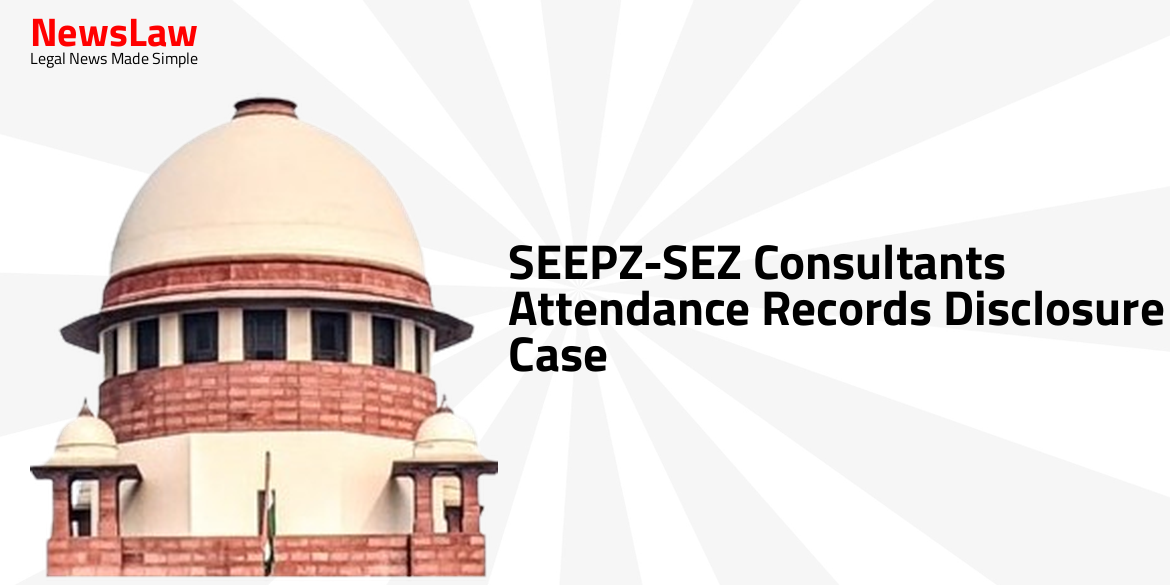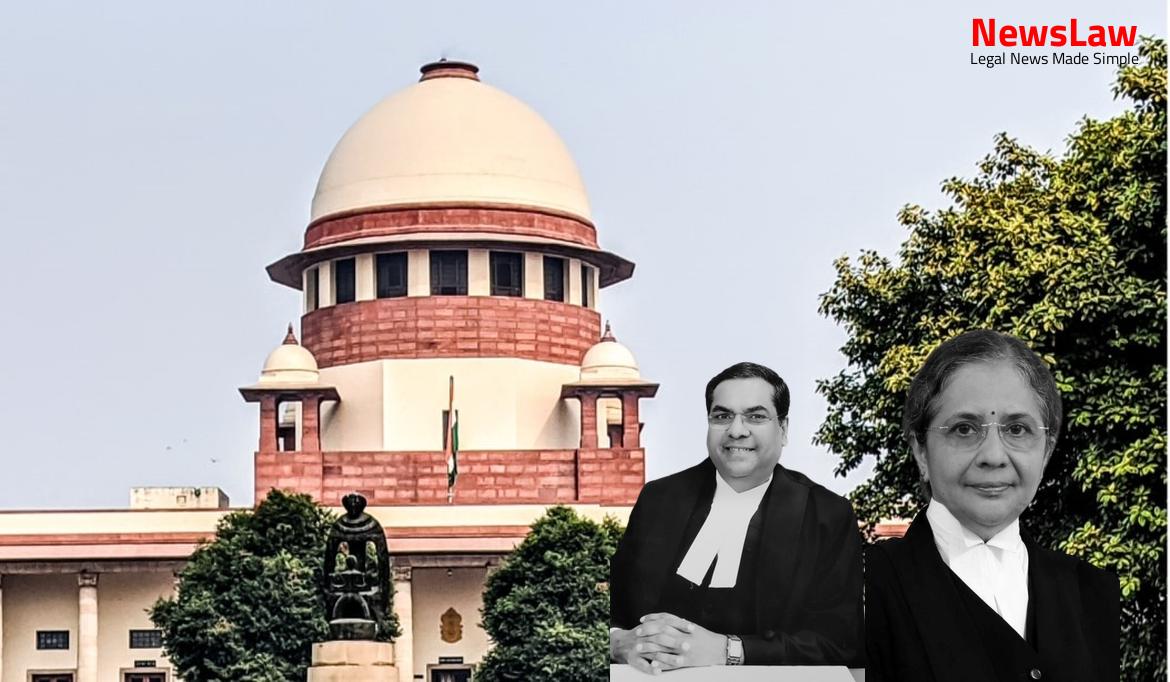In a significant legal development, the Delhi High Court issued a ruling in the case concerning the disclosure of attendance records of Consultants at SEEPZ-SEZ. The judgment addresses key aspects such as privacy rights, public interest, and the concept of forum conveniens. This decision has implications for the handling of personal information and larger societal considerations. Stay informed about this crucial case at the intersection of individual privacy and public accountability.
Facts
- The specific part (FAC) of the judgement refers to the period from 18.03.2020 to 19.01.2022.
- During this time, there was a force imposed that violated the Petitioner’s fundamental rights.
- The force was ultimately set aside on 19.01.2022.
- The imposition of this force caused mental agony and anguish to the Petitioner.
Analysis
- The attendance records of Consultants of SEEPZ-SEZ, Mumbai are considered personal information and exempted from disclosure under Section 8(1)(j) of the RTI Act unless there is a larger public interest involved.
- Personal information includes details such as name, address, grades, medical records, financial information, and professional records.
- The court may refuse to exercise its jurisdiction under articles 226 and 227 if the disclosure would invade privacy without serving a larger public interest.
- The concept of forum conveniens may be invoked to determine the appropriate jurisdiction for a case.
- The petitioner’s motive behind filing the RTI application may influence the decision to disclose information, and public interest must be demonstrated.
- Disclosure of personal information can be exempted if it does not relate to public activity or interest, and it is not a matter of right for the petitioner.
- Information of consultants who objected to sharing their attendance records has not been provided.
- The Full Bench in New India Assurance Co. Ltd. v. Union of India, AIR 2010 Delhi 43; (2011) 166 Comp Cas 87 (Delhi) did not consider the concept of forum conveniens and simply based jurisdiction on the location of the appellate authority.
- Merely being located within the territorial jurisdiction of the High Court is not sufficient for conferment of jurisdiction, as per the judgment in Sterling Agro Industries Ltd. v. Union of India & Ors., 2011 SCC OnLine Del 3162.
- The doctrine of forum conveniens and the nature of cause of action need to be analyzed by the High Court while entertaining a writ petition, as mentioned in previous judgments such as Ambica Industries v. CCE (2007) 213 ELT 323 and Union of India v. Adani Exports Ltd. (2002) 1 SCC 567.
- The earlier decision in New India Assurance Co. Ltd. v. Union of India, AIR 2010 Delhi 43; (2011) 166 Comp Cas 87 (Delhi) was overruled regarding the location of the appellate authority being the forum conveniens.
- The High Court of Bombay was deemed as the forum conveniens for the petitioner to seek redressal of grievances.
- Section 8(1)(j) of the RTI Act pertains to personal information and invasion of privacy.
- Disclosure of personal information must have a relationship to public activity or interest.
- Disclosure causing unwarranted invasion of privacy can be allowed if it serves larger public interest.
- The Supreme Court in CPIO, Supreme Court of India v. Subhash Chandra Agarwal defined ‘personal information’ in relation to RTI Act.
- Information denied in the interest of privacy may still be disclosed if the larger public interest justifies it.
Decision
- Dismissal of the writ petition along with any pending applications
- Request for other reliefs to be considered in the context of the case
- Court costs to be provided by the appropriate party
Case Title: BINOD AGARWAL Vs. THE CPIO AND ORS. (2024:DHC:4345)
Case Number: W.P.(C)-2789/2022



